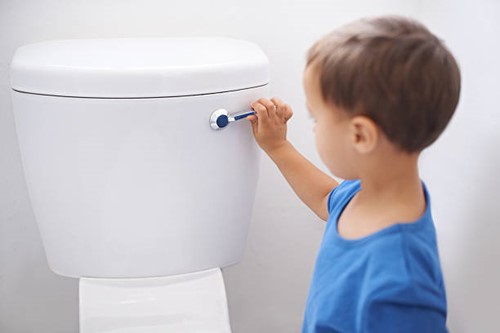- Wakefield SEND Local Offer
- Common Worries
- Toileting
Toileting
If your child is slow to develop their bladder or bowel control, your health visitor will be able to give you some advice and tips to help.
They may also refer you to community paediatrician to find out if there may be a medical reason for the problems with control or constipation.
Constipation can begin for a number of reasons:
- Not enough fluids have been taken in during the day which can be as a result of illness or disability
- Pain when trying to push a pooh out
- Fear of sitting on the toilet
- Not wanting a parent to be angry so the child tries to hold on to the pooh (called withholding or resisting)
- Dislike of using school toilets
- Not liking the smell of stools, so trying not to let them come out
- A cold unpleasant toilet.
- If a child is over encouraged to do a poo they can sometimes refuse to go and it becomes a battle
Another issue your child may have is soiling. Soiling is when a child passes stools in places other than the toilet at an age when they could be expected to use the toilet appropriately, e.g:
- Stains in pants
- Formed stools (pooh) in the pants
- Stools in the wrong place (like behind a sofa, in a corner)
- Play with or smearing stools
- Watery stools coming out nearly all the time.
Soiling can occur for many reasons, the most common of which include:
- Delay or difficulty in learning to use the toilet properly
- An illness may have made them get out of the habit of regularly using the toilet
- Constipation or a problem with the bowel (gastrointestinal problem)
- Recent stresses or worries like such as bullying or bereavement
- A history of bowel problems in the family
- Soiling can be an expression of a child’s feelings of anger.
Soiling can be very distressing for both the child and the parents or carers but it is very common. When talking with health professionals, they will also sometimes refer to soiling as encopresis.
There are two types of encopresis:
- Primary encopresis refers to children who soil from birth onwards, without achieving bowel control. This is something the community paediatrician will be able to help with.
- Secondary encopresis is when a child has achieved bowel control, but begins to soil again later. This may be due to an emotional difficulty. This is something that a clinical psychologist would be able to help with.
You could also be referred to a clinical psychologist to give advice on how to encourage your child to use the toilet.

If your child suffers from incontinence, you can be referred to the Continence Service who can provide practical advice and help. If your child is over the age of three, a continence assessment may mean you can access free nappies or continence products. For more about the Continence Service click here.
ERIC, the UK’s Education and Resources for Improving Childhood Continence Charity, has lots of helpful resources and information available for toileting issues and toilet training and you can access their page here.
